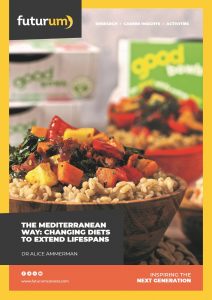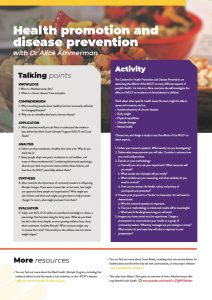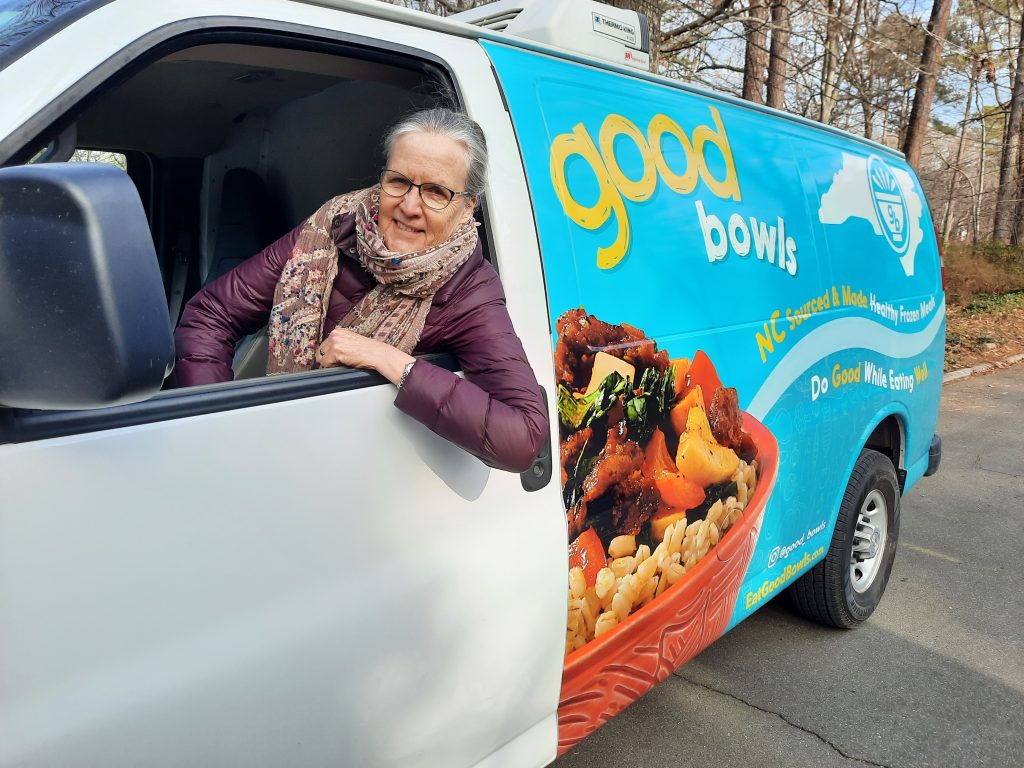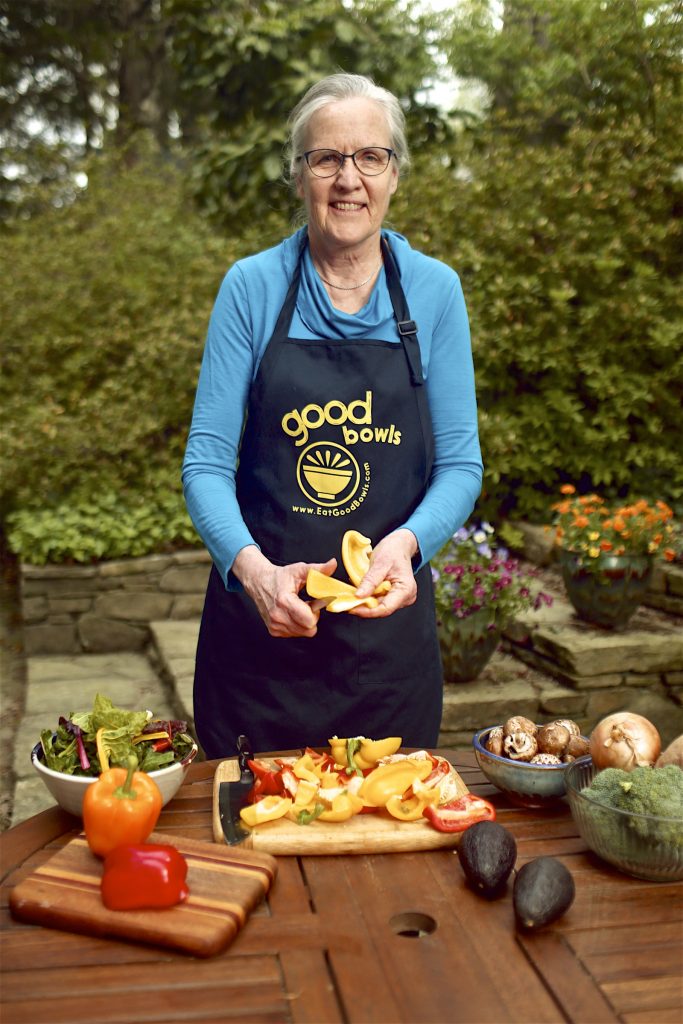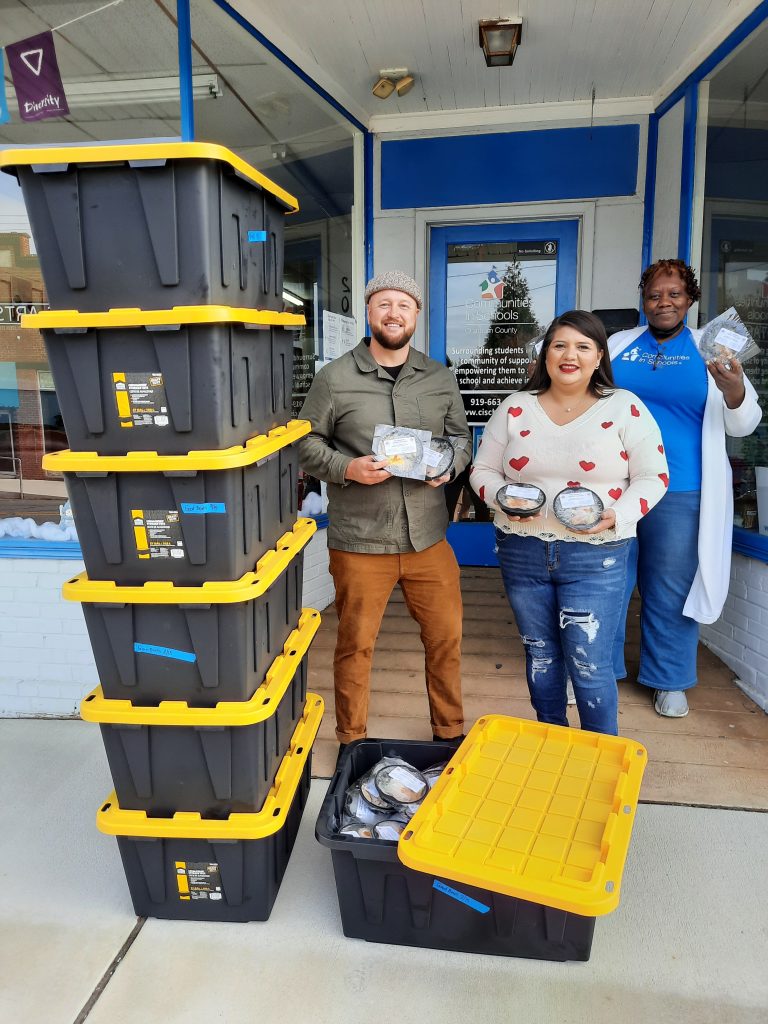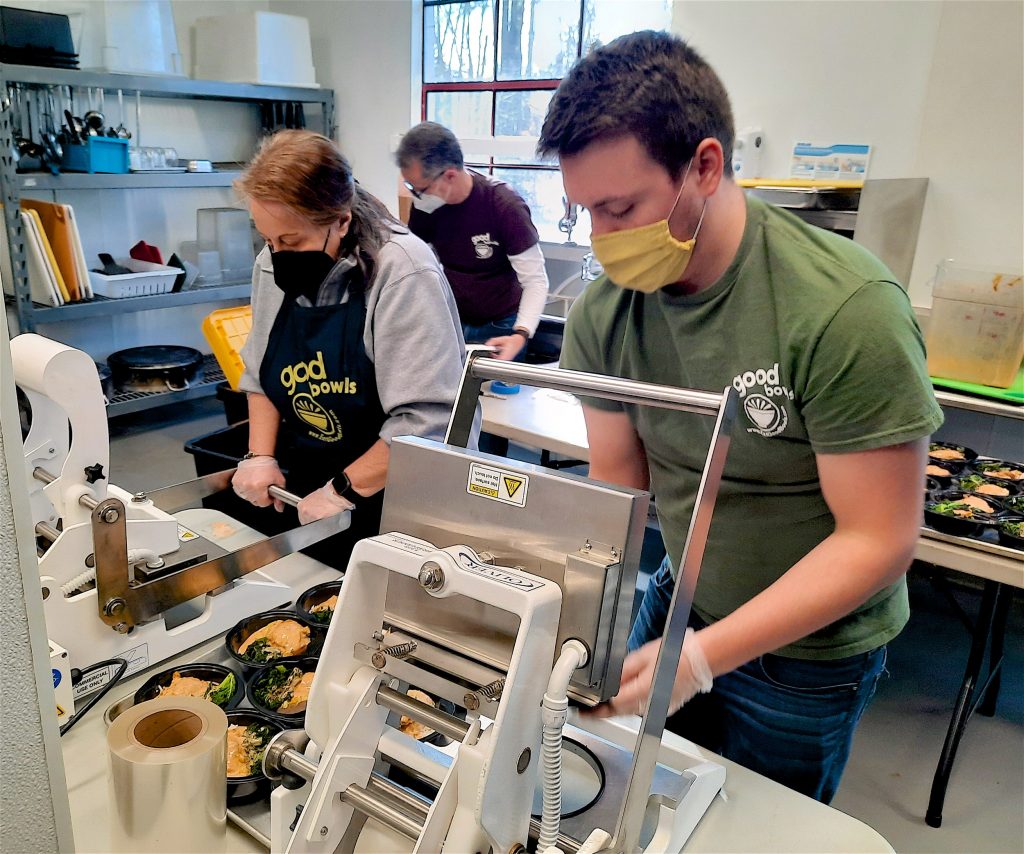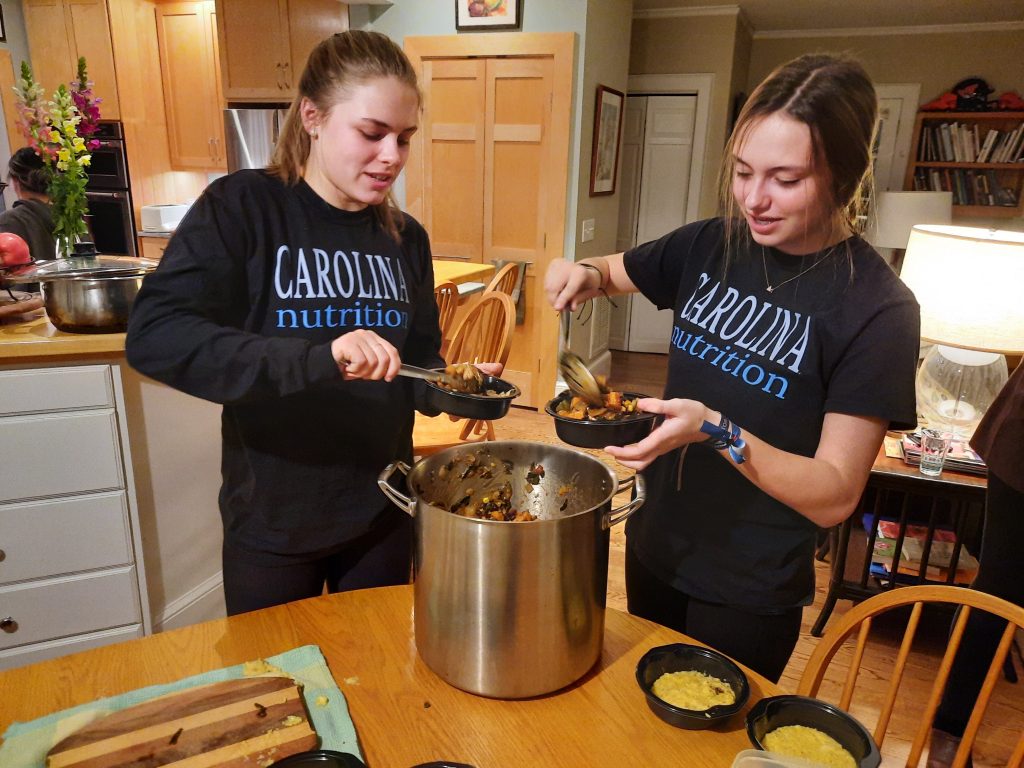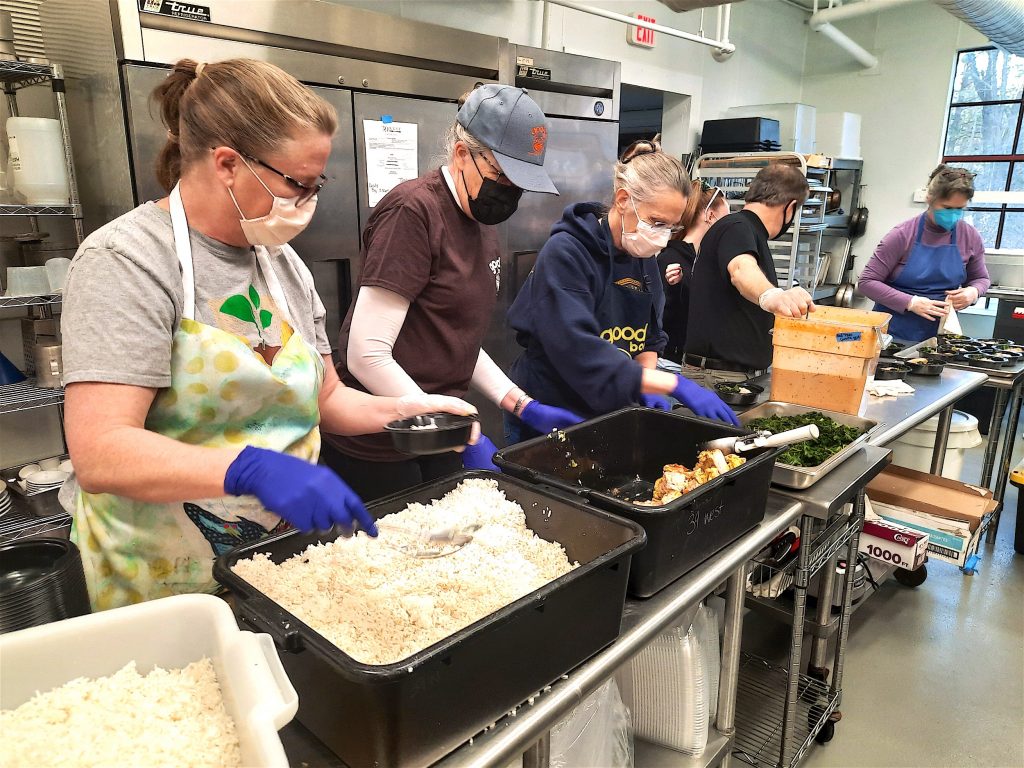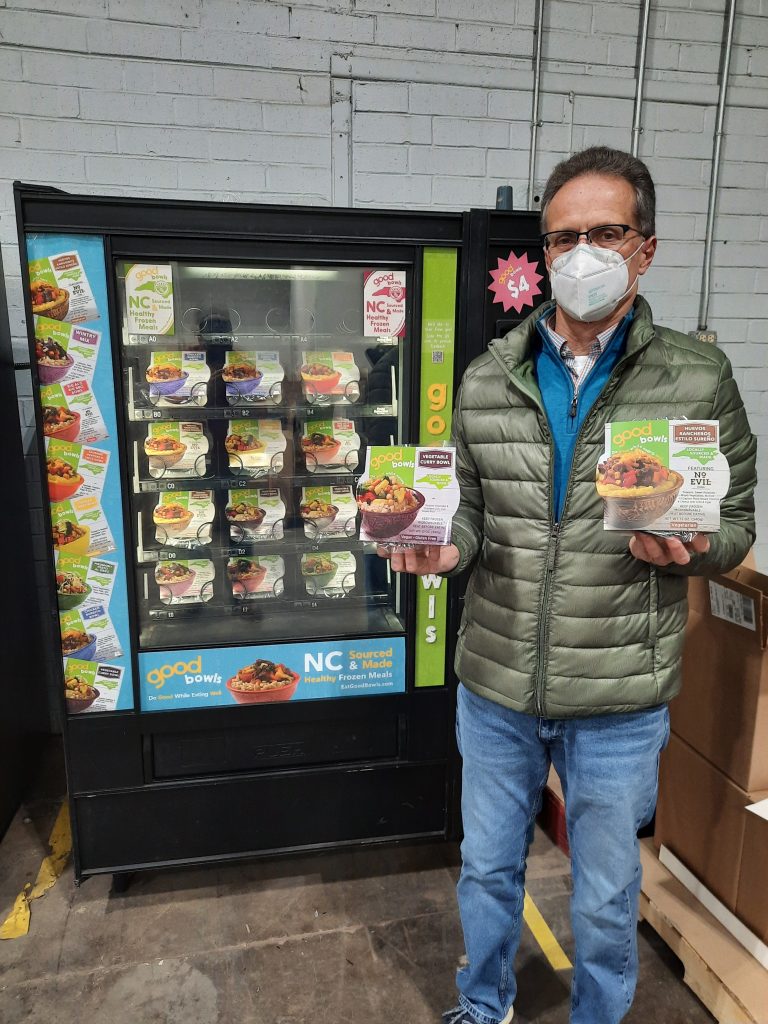The Mediterranean way: changing diets to extend lifespans
A poor diet can significantly shorten a person’s life expectancy and quality of life, but switching to a healthy diet is easier said than done. Based at the University of North Carolina at Chapel Hill, Dr Alice Ammerman is tackling this in Southeastern USA, through a multi-pronged approach to provide high-quality meals and inspire healthier lifestyles, all based on robust scientific evidence.
TALK LIKE A HEALTH PROMOTION AND DISEASE PREVENTION RESEARCHER
Blood pressure — the force of circulating blood on artery walls. High blood pressure is associated with increased risk of heart disease
Chronic disease — health conditions that typically last over a year and require ongoing medical attention and/or negatively affect a person’s quality of life
High-quality fats — polyunsaturated and monounsaturated fats from vegetables, nuts and fish, as opposed to unhealthy trans fats, found in processed foods, and ‘neutral’ saturated fats, found in meat, dairy products, and some oils such as palm oil
Mediterranean diet — a diet traditional to Mediterranean countries, typically involving high consumption of vegetables, whole grains, nuts and olive oil, and moderate consumption of protein
Type II diabetes — a disease caused when the body produces insufficient insulin or does not respond to insulin. It is often associated with obesity and older age
Whole grains — grains used in food that still contain fibre and other essential components, considered healthier than processed or refined grains
Leading a healthy lifestyle is not always easy, and a person’s ability to do so is heavily affected by their environment. “In the US, chronic diseases such as type II diabetes, heart disease and obesity are more common among low-income, minority and rural populations,” says Dr Alice Ammerman, the Director of the University of North Carolina at Chapel Hill’s Center for Health Promotion and Disease Prevention (HPDP). “Limited access to healthy food is a significant contributor to this trend.” Healthier foods are often more expensive or harder to find, which poses barriers when promoting a healthier lifestyle.
There are no straightforward solutions to this issue. To change this trend, it is essential to make healthier foods more accessible and to encourage behavioural changes in those people with unhealthy diets. The Med-South Lifestyle Program (MSLP), developed and tested by researchers at HPDP, aims to do exactly that, promoting behavioural and structural changes that make living a healthy lifestyle less of a burden on people’s time or money.
The Mediterranean diet
Research from many different sources suggests that the typical diet found in Mediterranean regions is one of the healthiest out there. “A Mediterranean diet is linked to reduced risk of many chronic diseases and a longer lifespan,” explains Alice. A Mediterranean diet involves decent quantities of high-quality fats, vegetables, nuts and whole grains. “Contrary to popular belief, higher fat diets are not associated with weight gain,” says Alice. “In fact, high-quality fats, such as those found in vegetable oils, fish and nuts, reduce the risk of many chronic diseases.”
Equiti Foods and Good Bowls
Based on these principles, Alice founded Equiti Foods, which has begun producing Good Bowls: healthy frozen meals based on the Mediterranean diet, adapted to incorporate seasonal, locally-sourced food in the Southeastern US. “We work with local food organisations – Happy Dirt and Farmer Foodshare – who help us identify and purchase seasonal surplus and ‘cosmetically challenged’ products that might otherwise go to waste,” says Alice. “We are also working with farmers who have the capacity to freeze excess products, so they can be available later in the year.”
Alice’s team has worked hard to make Good Bowls as accessible as possible. The use of local surplus ingredients keeps the price down, and the team has also taken measures to make it truly convenient – for instance, introducing Good Bowls vending machines into worksites. Adapting the Mediterranean diet to the Southeastern US palate has also paid dividends. “It is so rewarding to see our work bring real benefits to people’s quality of life,” says Alice. “This is especially true when people enjoy this way of eating; ‘it doesn’t even taste healthy’ is our favourite compliment!”
A community-based approach
While providing access to a healthy diet is a key piece of the puzzle, there are other pieces also in need of attention. “It’s important to understand the health priorities of communities, so that solutions are designed to address them directly,” explains Alice. “This includes understanding the health problems found in the community, as well as identifying the specific factors that influence change.” These drivers of change might include involving particular people such as faith leaders, community-based organisations, and local farms and food production businesses. An approach that engages these points of influence and encourages them to facilitate change in the community is often more effective than a broad-stroke approach.
The MSLP has been tailored with this in mind. “The MSLP is an evidence-based, behaviour-change intervention that promotes the Mediterranean diet alongside broader behavioural changes,” says Alice. “It includes support for increased physical activity, as well as optional support to help with taking medication.” Participants receive a manual and cookbook written in easy-to-understand English or Spanish, which goes over the principles of the Mediterranean diet. “Participants also receive sessions with a health counsellor, who helps them set personal goals for behaviour change, and introduces problem-solving and self-monitoring skills to make changes to diet and physical activity levels more achievable,” says Alice.
Results
The principles of the MSLP are now well-established and have been tested in many studies. “In one study, led by Dr Carmen Samuel-Hodge and involving 360 MSLP participants, we found participants were, on average, eating nearly one more serving of fruit and vegetables per day, and 0.4 servings fewer sugar-sweetened drinks,” says Alice. “They also performed moderate-intensity physical activity for an average of 43 minutes more per week.” Participants also had healthier blood pressure at the end of the study. While these changes might seem small, they demonstrate how behaviours can be changed over a period of just a few months. With continued support, these changes can magnify into healthy habits that can stay with participants for life.
Now, the team has its sights set on further research and action. “We want to test the MSLP with young children and pregnant women, to see how it can improve particular aspects of health including birth outcomes and dental disease,” says Alice. “We also want to take Good Bowls further, adapting them to different cultural preferences, and developing medically tailored Good Bowls to address specific health issues.”
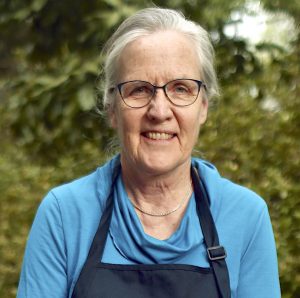 Dr Alice Ammerman
Dr Alice Ammerman
Director, Center for Health Promotion and Disease Prevention, and Professor of Nutrition, Gillings School of Global Public Health, University of North Carolina at Chapel Hill, USA
Founder, Equiti Foods and Good Bowls
Fields of research: Nutrition, Health Promotion and Disease Prevention
Research project: Good Bowls: empowering communities to achieve good food access and health equity
Funders: US Centers for Disease Control and Prevention (CDC), US National Institutes of Health (NIH), US Department of Agriculture (USDA)
About health promotion and disease prevention
Health promotion and disease prevention are direct applications of research with the explicit aim of improving people’s lives. This can make careers in the area extremely fulfilling. Alice explains more about her field of work.
Reference
https://doi.org/10.33424/FUTURUM400
“There are many areas of my work I find rewarding. Addressing health equity and reducing health disparities is a priority for me, especially focusing on approaches to prevent people suffering from health issues in the first place, rather than just treating the disease when it appears. I also love working with people from other disciplines and having the freedom to test innovative ideas.
“The rapid pace of technological advancement is opening new doors for our researchers. We are starting to use artificial intelligence to ‘nudge’ people towards healthier choices via their mobile phones. More integrated systems mean we can identify and use food that would otherwise be wasted. Public health methods can become more precise, as we are able to collect more precise data about individuals and communities. There is also a growing body of research understanding how the economics of our food systems affects public health, and how we can change these systems to help us become healthier.
“I recommend getting experience outside of academia before committing to a career in research. This might include working with local communities, or volunteering with relevant organisations. Broadening your horizons at an early stage can help you pinpoint what you want to do in the future.”
Pathway from school to health promotion and disease prevention
• Subjects such as biology, chemistry and mathematics are likely to support further education in the field. Other subjects such as psychology, economics and geography – which explore behaviour, attitudes and social interactions – may also prove useful.
• At college or university, Alice suggests courses or modules in epidemiology, biology, chemistry, behavioural psychology, systems science and communications.
Explore careers in health promotion and disease prevention
• The University of North Carolina at Chapel Hill’s Center for Health Promotion and Disease Prevention (HPDP) offers various opportunities for students, including internships with community health programmes.
• The Centers for Disease Control and Prevention have a diverse array of resources for high school students, including independent learning materials and information on work experience and summer camps.
• The American Public Health Association’s Student Assembly is dedicated to furthering the development of the next generation of public health professionals. It provides opportunities to gain leadership experience, further your education and develop networks.
• According to Glassdoor, the average salary for a public health professional in the US is around $53,000 per year.
Meet Alice
Community engagement and social entrepreneurship have shaped my career. My work with local communities has been a pathway to funded research and publication, while Good Bowls has enabled me to take a sustainable approach to social justice.
The worst advice I have received is to only focus on my own research. It’s important to be open to new opportunities, even if they might seem like a distraction at the time.
I have a range of methods for overcoming obstacles. Approaching a challenge from different directions and asking for advice or collaboration from others can show solutions you might otherwise miss. Don’t give up, and seek ‘win-wins’ in tricky situations.
Becoming the Director of HPDP was a big moment for me. I’m also hugely proud of the students I have mentored, as well as my work to address health disparities and equity. My business, Equiti Foods, is also really valuable to me because of its social mission.
Alice’s top tips
1. Say yes to opportunities but learn which opportunities will be a good use of your time and will help others.
2. Always be kind. Help people.
3. Quoting Ms Frizzle from the Magic School Bus: “Take chances, make mistakes, get messy!”
Do you have a question for Alice?
Write it in the comments box below and Alice get back to you. (Remember, researchers are very busy people, so you may have to wait a few days.)

